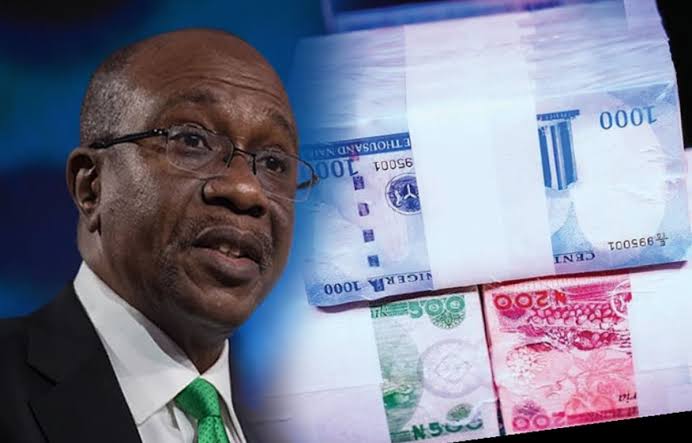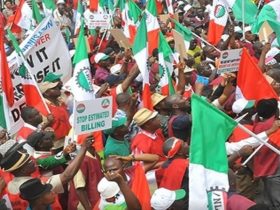Nigeria is a country that has seen it all; a nation with a long history of triumphs and tribulations. Despite the odds, Nigerians continue to show their tenacity, hustling spirit, and never-give-up attitude.
In local parlance, one of the commonest catchphrases amongst Nigerian masses translates to mean that “There is never a situation so difficult that Nigerians cannot survive” – even the hardest situation.
In fact, many Nigerians take pride in their uncanny ability to withstand and be able to survive any difficulties or life-threatening situations. The recent cash scarcity also turned out to prove that Nigerians can survive anything.
However, 2023 will go down in history as one of the most unforgettable years for many Nigerians. The recently test-run cash policy and redesign led to cash scarcity and untoward hardship. It was a storm that tested the resilience of many Nigerians.
There were people who could not survive the cash scarcity. Small businesses were lost, families slept on empty stomachs, and many sick people were unable to buy drugs and items needed to cater for themselves. In Nigeria’s history, there has never been a time when Nigerians must buy money with money before they could spend money; but it happened in 2023.
Recall, the redesign of the 200, 500, and 1,000-naira notes, announced by the Central Bank of Nigeria [CBN] on October 26 2022, was aimed at taking control of the circulating naira, managing inflation, combating counterfeiting, and claiming concerns over “illicit” monies in circulation, which the federal government said bandits and kidnappers had been using to commit their crimes.
At first, many Nigerians welcomed the policy with open arms, because the Federal government through CBN was able to highlight its many advantages, including a decrease in kidnapping due to a lack of funding and a cessation of vote-buying.
Many financial experts and analysts also believed that effective currency redesign can assist regulatory reform, expanded legislative authority, and coordinated fiscal and structural policies, as evidenced by experiences from other jurisdictions.
Regrettably, the approach with which the policy was executed resulted in a distressing, unpleasant, and thoughtless outcome – resulting in an uncommon lack of cash. This caused widespread anger across the country, adding to the difficulties already faced by citizens who were struggling with queues for food, fuel, PVC, and coping with a shortage of cash.
The Nigerian Currency Crisis of 2023 began in February due to a lack of physical Naira currency and the government’s push for citizens to use digital currency and adopt a cashless policy. A sudden and unexpected cash scarcity that severely affected millions of innocent Nigerians, resulting in significant consequences for them.
Individuals spent extended periods standing in queues at ATMs and banks attempting to withdraw minimal cash, often without success. This has also had a severe impact on many poor farmers, particularly those in rural regions, who have been unable to sell their goods at market rates and have been forced to sell them at a loss.
Media reports indicated that patients experienced difficulties in receiving medical treatment due to the prevalence of cash-only health facilities or those with poor electronic payment systems. These establishments were known to reject electronic transfers and would only accept cash payments before providing treatment.
Tragically, there had been incidents where patients were denied treatment, such as the case of a pregnant woman in Kaduna State who lost her pregnancy because her husband was unable to make payment due to the scarcity of Naira cash currency.
Due to the scarcity of cash and the malfunctioning of e-payment platforms, a lot of Nigerians residing in urban areas were unable to meet their domestic needs, or even get fuel from petrol stations.
During the cash scarcity period, one might wonder about the situation of street beggars, especially when even those with money were unable to access their funds. How did beggars cope during the period of cash scarcity? Were there any support systems in place to assist them in surviving the challenging situation?
A destitute woman at Sokoto’s Hajia Halima Market shared that she hardly received any cash donations because of the shortage of Naira notes, which has been very distressing for Nigerians.
Additionally, the situation was exacerbated by persistent payment system issues, which made retail transactions across various sectors stressful and worrisome. The Cable reports that the Nigerian economy suffered a loss of approximately N20 trillion during the currency crisis.
The cash scarcity brought about lack of availability of basic home necessities due to the inability of most of the local market woman to handle online purchases, which made households go hungry. Banks were under excessive strain as a result of online transactions. Millions of law-abiding, innocent Nigerians were hit by an unanticipated wave of cash shortage, which had serious repercussions for them.
I vividly recall a day when I couldn’t obtain cash to commute to work. I had to join a long queue at the filling station and wait to pay for fuel using the station’s POS system. I never needed the fuel. After completing the payment, I lingered near the attendants, hoping to find someone willing to exchange their cash for my payment receipt. Meanwhile, members of my church would approach the ushers even before the service ended, pleading for cash from the offering so they could transfer it to the church accountant.
Some individuals went as far as proposing a barter system as a temporary solution to the cash scarcity problem, where goods and services could be exchanged without the need for physical cash.
This idea was particularly popular among rural communities, where cash transactions were already less common and the exchange of goods for goods or services was more prevalent. However, others pointed out that a barter system could be challenging to implement on a larger scale and might not be a sustainable long-term solution for a modern economy.
However, in life, every situation presents an opportunity for growth and learning. Even challenging circumstances, such as experiencing a cash scarcity, can provide valuable lessons that can help us navigate future challenges more effectively. Therefore, it’s essential to reflect on the experiences and extract valuable insights.
Potential lessons that can be learned from the Nigerian currency crisis include:
Importance of effective communication and proper implementation of policies: The Nigerian government’s attempt to implement a cashless policy and a new digital currency was not properly communicated to the public and the implementation process was flawed, leading to confusion and unrest.
The need for diversified payment options: The cash scarcity highlighted the importance of having multiple payment options such as digital payments, mobile money, and other electronic payment methods.
The importance of emergency preparedness: The currency crisis caught many Nigerians off guard, emphasizing the importance of being prepared for unexpected situations that may impact the availability of cash or other resources.
The crisis highlighted the importance of financial inclusion, particularly for vulnerable populations such as the poor, the elderly, and those in rural areas who may have limited access to digital payment options.
The impact of corruption and mismanagement: The crisis exposed issues with corruption and mismanagement within the Nigerian financial system, highlighting the need for stronger oversight and regulation to prevent future crises.
Overall, the Nigerian currency crisis serves as a reminder of the importance of effective policies, diversified payment options, emergency preparedness, financial inclusion, and the need for accountability and transparency in financial systems.
The 2023 Nigerian Currency Crisis has been a period of great hardship and suffering for many Nigerians. The shortage of Naira cash currency and the attempt by the Nigerian Government to force citizens to adopt cashless policy and use a newly created central bank digital currency led to extensive protests and agitations, leaving many without access to essential goods and services. The crisis also had a devastating impact on the most vulnerable members of society, including street beggars, patients in cash-only health facilities, and farmers in rural areas. Despite the government’s efforts to address the crisis, many Nigerians are still struggling to recover from its effects. It serves as a reminder of the importance of implementing policies with sensitivity and care, particularly during times of crisis.
NAIRA SCARCITY: An Assessment of Pains, Struggles and Coping Mechanism of Nigerians.









Leave a Reply